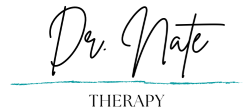When Love and Politics Collide: Coping with Family Estrangement in a Divided World
We don’t choose our families, but for many of us, there is an expectation that love and loyalty should transcend all differences. That belief can hold strong, until it doesn’t. In recent years, political and social divisions have cut across families in ways that feel deeply personal, leaving many people grieving relationships that once felt safe, familiar, or even foundational.
It can be shocking when someone you’ve known your entire life suddenly feels like a stranger, or worse, like a threat to your sense of identity or safety. For some, the divide started with an argument at a family dinner. For others, it grew silently over time, shaped by newsfeeds, elections, social media posts, or subtle shifts in language and tone.
When these differences go beyond simple disagreement and touch on core values, identity, or lived experience, they can lead to estrangement. And that estrangement is often layered with grief, confusion, guilt, and even a sense of betrayal. If you’re in this place, you’re not alone. And you’re not wrong for feeling heartbroken, conflicted, or unsure of how to move forward.
Why This Hurts So Much
Political and ideological differences are not always about policy. Sometimes they feel like questions of right and wrong, justice and harm, or dignity and denial. When a loved one expresses beliefs that negate your lived experience, reject your identity, or support systems that harm communities you care about, it goes deeper than disagreement. It touches the heart of who you are.
You might feel like you no longer recognize the person you grew up with. You might question your memories or feel like your emotional foundation has been shaken. And if you’ve tried to engage in honest conversations and been met with defensiveness, ridicule, or dismissal, it can add another layer of pain. The person you once turned to for comfort might now be the source of your distress.
That’s a painful shift to carry, and it’s okay to name it.
Love Doesn’t Always Protect Us
Many people stay in strained or harmful relationships because they feel guilty walking away. We’re taught that family is forever, that love conquers all, and that forgiveness means staying close. But love, when not paired with respect or safety, can be confusing and even damaging.
You can love someone deeply and still need to create distance. You can hold compassion for someone’s history while also setting boundaries around your future. You are not less loyal, less kind, or less forgiving for taking space. Sometimes the most loving choice you can make is to protect your peace.
Grieving the Relationship You Thought You Had
Estrangement is often a form of ambiguous loss. The person is still alive, still present in the world, but not in your life in the same way. You may miss who they were, or who you believed they were. You might find yourself remembering the good moments and wondering how those memories fit into the current reality.
Grief in these situations is complicated. It can come in waves, and it’s not always linear. You might feel relief and sorrow in the same breath. You might feel guilt for the relief, or shame for the anger. This is all part of the process, and there’s nothing wrong with having mixed emotions.
Allowing yourself to grieve, rather than forcing closure or clarity, can be an important part of healing.
Releasing the Pressure to Fix It
Many people feel pressure to “fix” the rift. Maybe your other family members urge you to “just let it go.” Maybe part of you still hopes that one more conversation might change everything. But some divides are not ours to repair alone.
If you’ve tried to engage and the other person has shown no willingness to reflect, listen, or meet you with mutual respect, it’s okay to stop trying. This doesn’t mean giving up on humanity or hope. It simply means accepting that you cannot force change in someone who isn’t ready or willing.
Your job is not to carry the emotional labor of every relationship. Your job is to care for your own wellbeing, so that you can show up in the world with strength and integrity.
Finding Support and Validation
When political rifts lead to family estrangement, it can be a lonely experience. Others might not understand why you’ve chosen distance. You may feel judged, questioned, or even gaslit about your decision.
Surrounding yourself with people who validate your experience can make a world of difference. This might include close friends, chosen family, support groups, or a therapist who understands the emotional toll of family conflict and identity-based stress. Being seen and heard in your truth is a vital step toward healing.
Therapy can also help you unpack the layered emotions that come with estrangement, clarify your values, and explore what boundaries feel right for you moving forward.
Living in Alignment with Your Values
In therapy, we often explore the question: What matters most to you, and how can you live more fully in alignment with those values? When it comes to family estrangement, this question can be grounding.
If your values include authenticity, justice, kindness, or safety, your decisions around relationships will likely reflect those priorities. Choosing distance from a loved one whose words or actions undermine your values does not mean you are being rigid or unforgiving. It means you are honoring your integrity.
Living in alignment with your values might mean loving someone from afar. It might mean mourning what was, while investing in what can be. It might mean building a life that is spacious enough for both grief and joy.
Creating Meaningful Connection Elsewhere
When a family relationship is lost or strained, it’s natural to feel like something essential is missing. But over time, many people find that meaningful connection can be rebuilt in new ways. Chosen family, affirming communities, and friendships rooted in mutual respect can offer the belonging that may no longer be possible with certain relatives.
You deserve to feel seen, respected, and valued in your relationships. While it can take time to heal from the loss of family connection, it’s possible to create new relationships that nourish you, reflect your growth, and support your well-being.
Final Thoughts
Family estrangement due to political or ideological differences can leave us feeling disoriented, heartbroken, or unsure of what comes next. These ruptures often go deeper than disagreement. They challenge our sense of belonging, identity, and safety in the relationships we once counted on.
If you’re navigating this terrain, please know that your pain is valid. So is your need for space, clarity, or distance. It’s okay to grieve what was, even if it cannot be rebuilt. You can honor the love that once existed while also protecting the peace you are creating now.
Healing from family estrangement is not about fixing what cannot be fixed. It’s about moving forward in a way that honors your values, your emotional safety, and your integrity.
If this is something you’re working through, you don’t have to do it alone. Therapy can provide a safe place to process the grief, explore your boundaries, and reconnect with your sense of self. You deserve support that sees the full complexity of your experience and holds space for your healing.
Ready to take the next step? Reach out today to schedule a free consultation or learn more about how therapy can support you as you navigate estrangement, identity, and relational healing. You are allowed to set boundaries. You are allowed to heal. And you are allowed to create a life that feels grounded, peaceful, and true.

